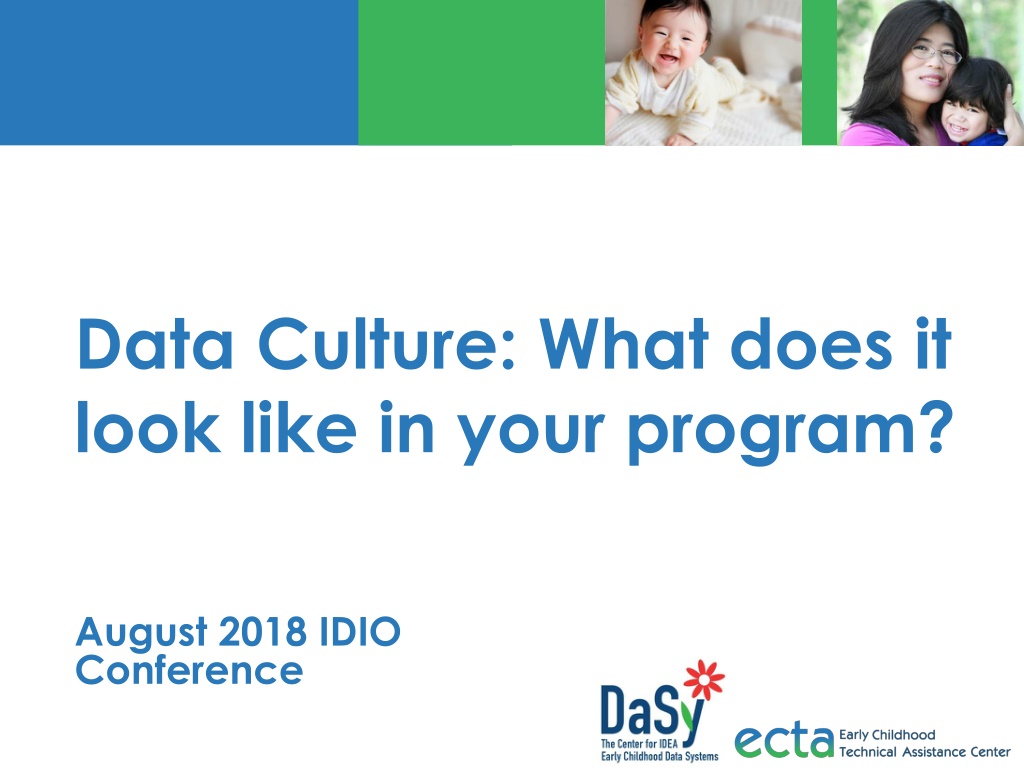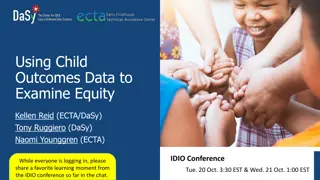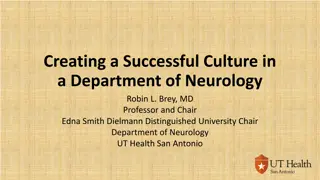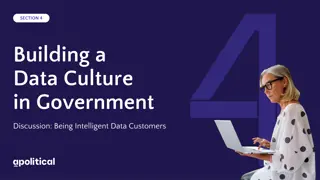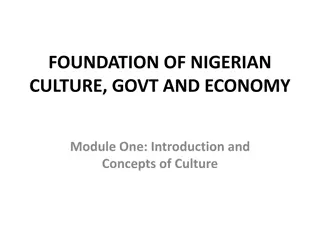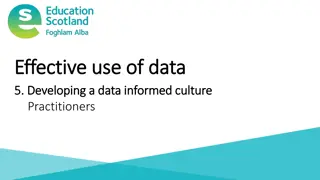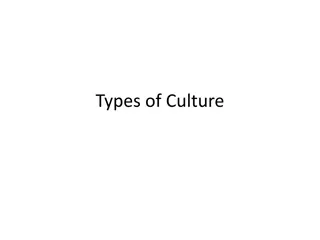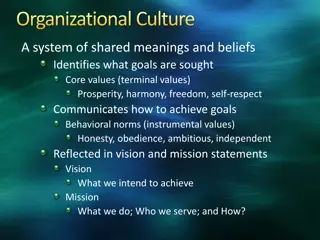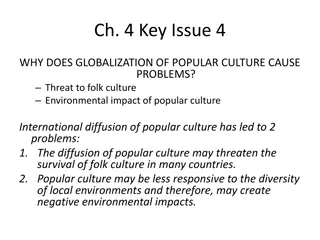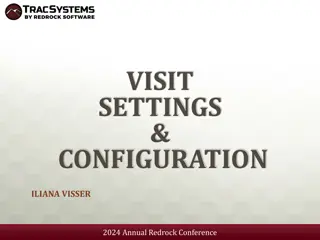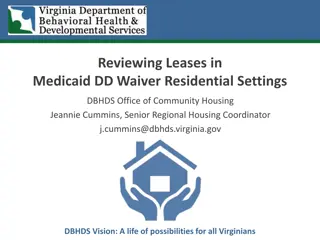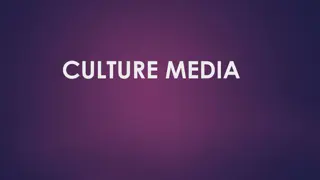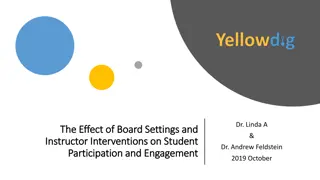Exploring Data Culture in Program Settings: Insights from IDIO Conference
The August 2018 IDIO Conference delved into the significance of fostering a data-centric culture and supporting data teams at local and state levels. Participants discussed tools and strategies to nurture data utilization within programs, reflecting on the impact of data culture. Insights from sessions, introductions, and interactive polls highlighted the importance of creating a conducive environment for effective data use and decision-making.
Uploaded on Oct 04, 2024 | 0 Views
Download Presentation

Please find below an Image/Link to download the presentation.
The content on the website is provided AS IS for your information and personal use only. It may not be sold, licensed, or shared on other websites without obtaining consent from the author. Download presentation by click this link. If you encounter any issues during the download, it is possible that the publisher has removed the file from their server.
E N D
Presentation Transcript
Data Culture: What does it look like in your program? August 2018 IDIO Conference
Session Objectives Part C and Part B 619 recognize the important of creating a culture of data use and supporting data teams to effectively use data at the local and state levels. Hear and share about efforts (and supporting tools) to build a culture of data use and reflect on your program s data culture. 2
Introductions State Panelists DaSy Darci Rickson, KS Brenda Sharp, LA Lisa Backer, MN Haidee Bernstein Denise Mauzy 3
To the polls Get ready! You can participate on either your cell phone or online. By phone: Open a new text message to 22333, type DASY, send the message. Online: Enter this URL into your browser: PollEv.com/dasy
What do you think about when you hear data culture? 5
Data Culture Toolkit: Supporting State and Local Data Use
Louisiana: Teaming to Support Data Brenda Sharp 8
General Supervision Louisiana SiMR: improve child outcomes through supports that are focused on family concerns, priorities and resources and provided through a team-based approach. Phase III, Year 1 made 2 infrastructure changes that required follow up for implementation fidelity: Designating availability of a service resource Changing the child outcome measurement process
Louisiana Process for review: generate a report at the state level, disaggregate by region, send to regional staff for review and follow up with individual agencies. Teaming Plan Considerations Worksheet selected for staff discussion on using data for decision making What we learned State staff doing all the work No buy in from agencies Conversation was perceived as punitive State staff needed support on using reports 10
Table Talk 11
Minnesota: Assessing Data Use Culture Lisa Backer 12
Formal Strategies: SSIP Infrastructure Analysis State: DaSY Framework completed by SSIP leadership team during Phase I Survey of all local ECSE programs (Part C and 619) and leaders using INSPIRE ACTION 1.0 program self assessment 13
INSPIRE 5 4 3 2 1 0 I N S P I R E: Tech E: Adpt Part B Part C education.state. mn.us 15
ACTION 5 4 3 2 1 0 A C T I ON-Coll ON-Use Part B Part C education.state. mn.us 16
Specifics of Data Use Local program leaders and staff were not choosing to use discretionary time to conduct data analysis. Some indicated lack of skill. Few had improvement plans that were data driven. Comments included a sense from local programs that the number of children in their data sets were too small to use to draw meaningful conclusions. 17
Less Formal Strategies Conference evaluations Regionally Representative Leadership Team Data reported by Professional Development Facilitators (PDFs) 18
Table Talk 19
Kansas: Assessing Data Quality Darci Rickson 20
Information Kansas Infant-Toddlers Services known locally as Tiny-k programs Part C is administered by the Kansas Department of Health and Environment (KDHE) 10,041 children received early intervention services in calendar year 2017 There are 32 local programs and each program is different
Local Program Database Users Coordinators Providers FSCs IFSP Users Data Managers
Assessing Data Quality Data Quality data must be consistent and unambiguous to be high quality Data quality issues are often the result of database merges in which data fields that should be compatible are not due to format inconsistences or communication issues Data is considered high quality if it FITS its intended uses
5 Languages of Data Completeness Validity Timeliness Consistency Integrity
Communication Issues Universal statewide IFSP and online database With an internet connection, the IFSP is entered directly into the database Without an internet connection, more steps are required to get the IFSP into the database More people touching the data equals higher probability for errors Solution: Kansas began creating a downloadable/uploadable IFSP
What is a Downloadable IFSP? The downloadable IFSP is a child specific, electronic, fillable PDF version of our IFSP The downloadable IFSP was created to enable database users to write or review an IFSP without access to an internet connection The downloadable IFSP does not update the database until it is uploaded back into the database and finalized
How does the Downloadable IFSP work? 1. The child specific IFSP is downloaded onto the database users device as an electronic, fillable PDF form Then the IFSP is reviewed or updated as needed Next the IFSP is uploaded into the database Data checks are performed on required fields When the IFSP is finalized in the database, the new information is updated in the database A notice will pop-up that the file was successfully uploaded 2. 3. 4. 5. 6.
The Downloadable IFSP ANY QUESTIONS??? Darci.Rickson@Ks.gov
Table Talk 29
Going Forward How can DaSy help you? 30
Final presentation slide Visit the DaSy website at: http://dasycenter.org/ Like us on Facebook: https://www.facebook.com/dasycenter Follow us on Twitter: @DaSyCenter 31
Thank you The contents of this tool and guidance were developed under grants from the U.S. Department of Education, #H326P120002 and #H326P170001. However, those contents do not necessarily represent the policy of the U.S. Department of Education, and you should not assume endorsement by the Federal Government. Project Officers: Meredith Miceli, Richelle Davis, and Julia Martin Eile. 32
